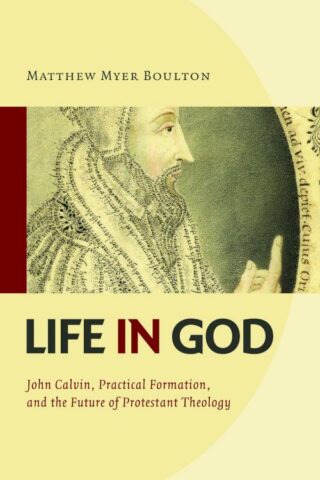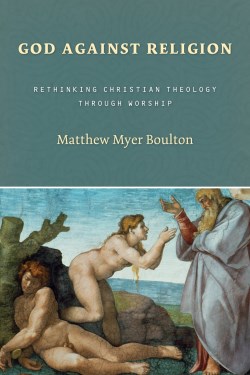Matthew Boulton
Showing all 2 results
-
Life In God
$31.99Add to cartReaders of John Calvin’s Institutes of the Christian Religion often regard this masterwork of doctrine as a cold, sterile, and merely intellectual project. But Matthew Myer Boulton reads it very differently. In Life in God: John Calvin, Practical Formation, and the Future of Protestant Theology Matthew Myer Boulton argues that for Calvin, Christian doctrine is properly conceived and articulated primarily for the sake of practical Christian formation–the immersive, restorative training for wholeness and holiness embodied in the church’s disciplinary treasury.
Although Calvin famously opposed the cloister, Boulton shows that his purpose was not the eradication but the democratization of monastic spiritual disciplines. Just as Calvin endorsed the “priesthood of all believers,” so too did he envision that ordinary disciples could live with God daily, consecrate themselves to the art of knowing God, and embrace spiritually formative practices including scriptural and theological study, daily prayer and worship, regular Psalm singing, frequent reception of the Lord’s Supper, renunciation of “the world,” rigorous moral accountability, and the like.
-
God Against Religion
$33.99Add to cartIn God against Religion Matthew Myer Boulton outlines a Christian theology that takes worship as its basic framework, conceiving worship as the occasion of not only an approach toward God in piety, but also separation from God in sin. Drawing on the thought of Martin Luther, John Calvin, and especially Karl Barth, Boulton rethinks the broadest themes of Christian theology through the lens of Christian worship. He offers three groundbreaking thoughts: that the catastrophe of “sin” is liturgy’s original and continual work, that the miracle of “reconciliation” is liturgy’s decisive transformation in Jesus Christ and the Holy Spirit, and that the glory of “redemption” is and will be liturgy’s end. The result is a fascinating proposal of a systematic, liturgical theology in the Reformed tradition. It will lead scholars, pastors, and anyone interested in thinking about Christian theology and Christian worship in fresh, critical, challenging directions.


